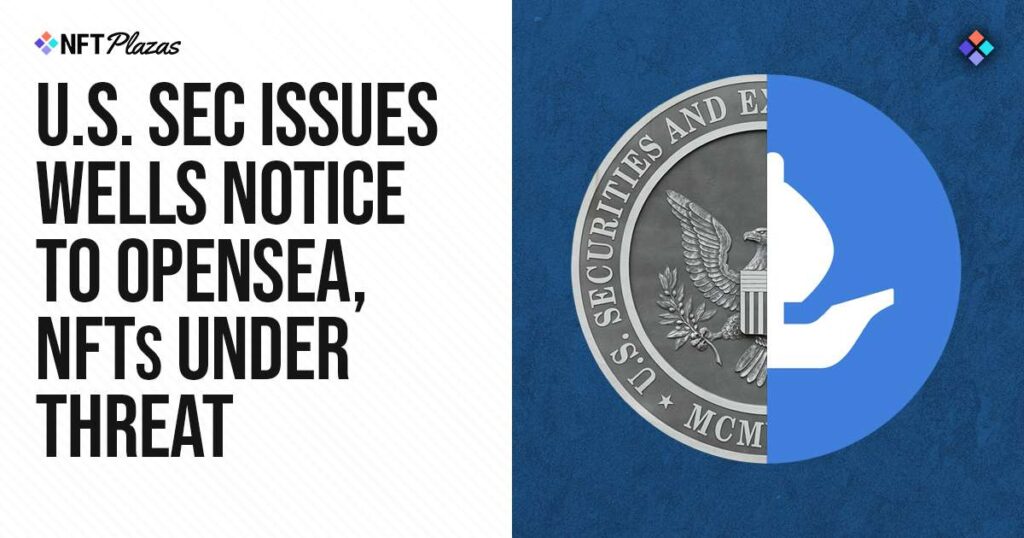Devin Finzer, CEO and co-founder of NFT marketplace OpenSea, confirmed that the U.S. Securities and Exchange Commission (SEC) has issued a Wells Notice to them.
A Wells Notice is a letter sent by the SEC at the conclusion of an investigation notifying the companies involved that the agency plans to take enforcement action against them.
Finzer shared his initial reaction to Pay legal fees.

 Source: Twitter (X)
Source: Twitter (X)What is a Wells Notice?
As explained, a Wells Notice is a letter of intent sent by the SEC notifying them that an investigation has concluded and that enforcement action may be taken.
Details of Wells’ notice have not been disclosed publicly, but Fenzer said in X’s initial response that the SEC “threatened to sue us.” It’s unclear what the SEC’s complaint is about or how much they hope to claim.
This is not the first time the SEC has had legal disputes with Web3 companies. Consensys, the developer of the MetaMask wallet, has been at loggerheads with the U.S. SEC for much of 2024, and the SEC has reached settlements with two NFT issuers in the past: Impact Theory and Stoner Cats.

 Source: OpenSea
Source: OpenSeaWhat does this mean for NFTs?
OpenSea has made it clear that they plan to vigorously defend their position that NFTs are not securities.
Finzer wrote in a statement posted on the OpenSea website: “Classifying NFTs as securities would not only misinterpret the law, but also jeopardize the livelihoods of artists, disenfranchise collectors and gamers, and stifle innovation for many promising use cases for NFTs. .
Still, with OpenSea committing $5 million to support any artist or developer similarly affected by Wells’ notice, it’s clear they are taking this issue very seriously and are looking out for not just their best interests, but the interests of the entire industry situation.
Fenzer concluded the statement by writing: “We hope the SEC will reconsider its position and approach this issue with the openness it deserves. Until then, OpenSea remains committed to upholding our vision for a better Internet — —Empower individuals and foster creativity, rather than stifling it with unnecessary regulatory burdens.

